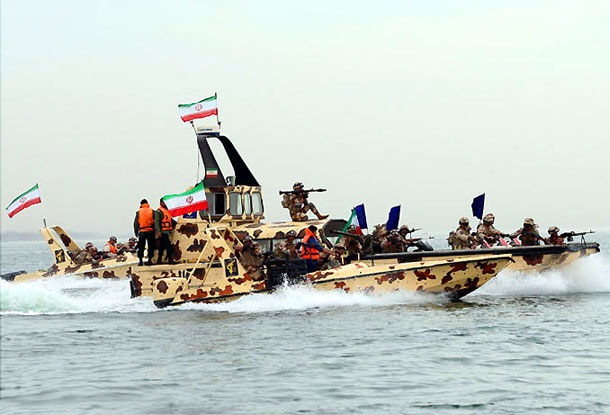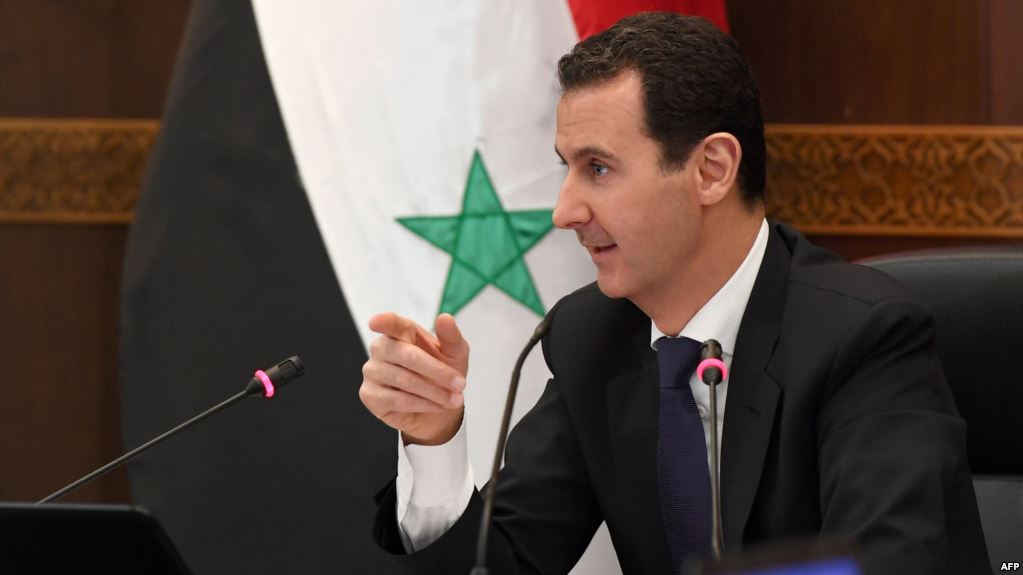US Isolation of Iran and a Regional War Nobody Wants [Part II]

Islamic Revolutionary Guard Corps (IRGC) Navy boats near the Strait of Hormuz (Photo: Sayyed Shahab-o-din Vajedi Source: Wikicommons)
Hossein Askari
The Globe Post
The crippling U.S. economic sanctions on Iran pose an existential threat to thousands of average Iranians. Before the signing of the nuclear deal in 2015, most Iranians blamed their own government for their deprivations, but today, they increasingly see the United States as the main culprit. They see a United States that broke its word and abrogated an agreement that called for sanctions relief in return for Iranian concessions on its nuclear program. Iran had kept its commitment, but the U.S. did not and instead intensified the severity of its sanctions.
To Iranians, their regime has committed no transgressions since 2015 but is blamed for conflicts in the region while the U.S., Saudi Arabia, the UAE, and Israel get a free pass. American policies are slowly converting Iranians from largely admiring America to branding it as the bully, even the existential threat, that is behind their misery. This buildup of Iranian bitterness is likely to contribute to increased militarization of Iran, regional instability, and future conflicts.
How will Tehran’s animosity play out in the region?
Iran’s Military Buildup
Iran is devoting more and more resources to its security. In the first instance, it is developing its air defenses, missile program, and cyber capabilities. Even though it has been starved of oil revenues by sanctions, Iran is likely to maintain its support for Bashar al-Assad’s regime in Syria, for Iranian-backed militias in Iraq, for the Houthis in Yemen, and for Hezbollah.

Iran came away from its war with Iraq, where it was isolated with no leverage on its adversaries, with an important lesson: it needed allies who could pressure and threaten adversaries. To this end, Iran has nurtured Hezbollah and Iraqi militias for pressuring adversaries, mainly to raise the cost of bullying for the U.S., and, if provoked, to threaten U.S. interests all over the Middle East and farther afield.
The American branding of Iran as the biggest state-sponsor of terrorism falls on deaf ears as U.S. forces encircle Iran, the U.S. lends military support for Saudi war atrocities in Yemen, carries out covert operations all over the region, and uses drones and cyber forces to threaten its adversaries.
Average Iranians who previously saw alliances with Hezbollah and militias as a waste of Iranian resources are increasingly endorsing such relations as they fear for their security and feel the pain of U.S. sanctions with no apparent end in sight.
Continue reading this story at The Globe Post
Read Part I of this article: Why Are US-Iran Relations So Tainted?
***
Hossein Askari
Emeritus Iran Professor of International Business and International Affairs at the George Washington University. In 1991, he was asked by the governments of Iran and Saudi Arabia to mediate and restore their diplomatic relations and by the government of Kuwait to improve relations with Iran
READ MORE IRAN NEWS AT: 21st Century Wire Iran Files
SUPPORT 21WIRE – SUBSCRIBE & BECOME A MEMBER @21WIRE.TV



